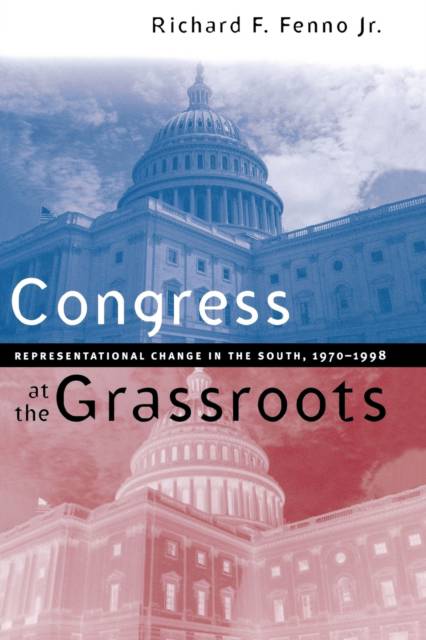
- Afhalen na 1 uur in een winkel met voorraad
- Gratis thuislevering in België vanaf € 30
- Ruim aanbod met 7 miljoen producten
- Afhalen na 1 uur in een winkel met voorraad
- Gratis thuislevering in België vanaf € 30
- Ruim aanbod met 7 miljoen producten
Zoeken
Congress at the Grassroots
Representational Change in the South, 1970-1998
Richard F Fenno
Paperback | Engels
€ 50,45
+ 100 punten
Omschrijving
However much politicians are demeaned and denounced in modern American society, our democracy could not work without them. For this reason, says Richard Fenno, their activities warrant our attention. In his pioneering book, Home Style, Fenno demonstrated that a close look at politicians at work in their districts can tell us a great deal about the process of representation. Here, Fenno employs a similarly revealing grassroots approach to explore how patterns of representation have changed in recent decades.
Fenno focuses on two members of the U.S. House of Representatives who represented the same west-central Georgia district at different times: Jack Flynt, who served from the 1950s to the 1970s, and Mac Collins, who has held the seat in the 1990s. His on-the-scene observation of their differing representational styles--Flynt focuses on people, Collins on policy--reveals the ways in which social and demographic changes inspire shifts in representational strategies.
More than a study of representational change in one district, Congress at the Grassroots also helps illuminate the larger subject of political change in the South and in the nation as a whole.
Fenno focuses on two members of the U.S. House of Representatives who represented the same west-central Georgia district at different times: Jack Flynt, who served from the 1950s to the 1970s, and Mac Collins, who has held the seat in the 1990s. His on-the-scene observation of their differing representational styles--Flynt focuses on people, Collins on policy--reveals the ways in which social and demographic changes inspire shifts in representational strategies.
More than a study of representational change in one district, Congress at the Grassroots also helps illuminate the larger subject of political change in the South and in the nation as a whole.
Specificaties
Betrokkenen
- Auteur(s):
- Uitgeverij:
Inhoud
- Aantal bladzijden:
- 192
- Taal:
- Engels
Eigenschappen
- Productcode (EAN):
- 9780807848555
- Verschijningsdatum:
- 12/04/2000
- Uitvoering:
- Paperback
- Formaat:
- Trade paperback (VS)
- Afmetingen:
- 156 mm x 234 mm
- Gewicht:
- 294 g

Alleen bij Standaard Boekhandel
+ 100 punten op je klantenkaart van Standaard Boekhandel
Beoordelingen
We publiceren alleen reviews die voldoen aan de voorwaarden voor reviews. Bekijk onze voorwaarden voor reviews.











